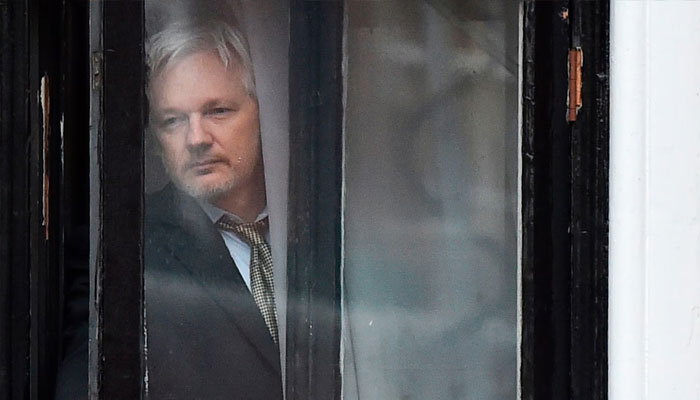Assange’s release
Wikileaks founder accepted a plea deal with US Department of Justice that saw him pleading guilty to a single charge of publishing US military secrets
Julian Assange is a free man, for now. A legal pursuit that spanned over a decade, involving multiple countries, embassies and charges ranging from sexual assault to espionage finally concluded in a courtroom in the US Pacific territory of Saipan. The Wikileaks founder accepted a plea deal with the US Department of Justice that saw him pleading guilty to a single charge of espionage related to obtaining and publishing US military secrets. He is now headed to his home country of Australia. As part of the deal, Assange will be required to destroy information provided to WikiLeaks. Here, it is pertinent to remind everyone that the espionage that Assange has been charged with mainly involved publishing secret documents that exposed the war crimes of the US and its Western allies in Iraq, Afghanistan and elsewhere. In other words, journalism. In the aftermath of the trial, one of Assange’s lawyers claimed that this was the first time in the 100-year history of the Espionage Act it had been used by the US to pursue a journalist or a publisher like his client. This is not the sort of behaviour one expects from the self-styled global champion of free expression and human rights.
That being said, Assange being cornered into accepting a plea deal and being charged under an act he still claims violates his First Amendment rights under the US constitution is not exactly a surprising outcome. If anything, Assange might be lucky that he does not have to spend several years behind bars in a high-security US prison, if the treatment of other US whistleblowers is anything to go by. Chelsea Manning, who allegedly gave hundreds of thousands of classified documents to Wikileaks revealing wrongdoing by US officials in Iraq received a 35-year prison sentence. Jack Teixiera has been senteced to 16 years in prison for allegedly leaking Pentagon documents that contained sensitive information including about the war in Ukraine. And who can forget Edward Snowden, who has been forced to seek exile in Russia for revealing his government’s surveillance of its own people.
When put together, the message that the fates of these individuals send is that the US is keen to fight its wars and do other dirty work in secret. The irony here being that punishing citizens for revealing said dirty work is a cudgel that the US often uses to browbeat other governments, mostly those in the Global South and outside of its Western-Nato alliance network. As it turns out, the US is just as keen to keep its dirty work secret, all the better to keep getting its hands dirty, as any other so-called ‘authoritarian government’. The fate of Snowden in particular shows that even revealing abuses against American citizens themselves is not a safe zone. As far as professional journalists and other media practitioners concerned with pursuing the truth no matter where it leads are concerned, the trial of Assange and his ilk reveals that they have no friends outside of their fellow brethren. At some point, chasing the truth too far may well cost you your freedom if not your life. There is no champion in your corner.
-
 Why Kate Middleton, Prince William Opt For ‘show Stopping Style’
Why Kate Middleton, Prince William Opt For ‘show Stopping Style’ -
 Here's Why Leonardo DiCaprio Will Not Attend This Year's 'Actors Award' Despite Major Nomination
Here's Why Leonardo DiCaprio Will Not Attend This Year's 'Actors Award' Despite Major Nomination -
 Ethan Hawke Reflects On Hollywood Success As Fifth Oscar Nomination Arrives
Ethan Hawke Reflects On Hollywood Success As Fifth Oscar Nomination Arrives -
 Tom Cruise Feeling Down In The Dumps Post A Series Of Failed Romances: Report
Tom Cruise Feeling Down In The Dumps Post A Series Of Failed Romances: Report -
 'The Pitt' Producer Reveals Why He Was Nervous For The New Ep Of Season Two
'The Pitt' Producer Reveals Why He Was Nervous For The New Ep Of Season Two -
 Maggie Gyllenhaal Gets Honest About Being Jealous Of Jake Gyllenhaal
Maggie Gyllenhaal Gets Honest About Being Jealous Of Jake Gyllenhaal -
 'Bridgerton' Star Luke Thompson Gets Honest About Season Five
'Bridgerton' Star Luke Thompson Gets Honest About Season Five -
 Prince William On Verge Of Breakdown Because Of 'disgraced' Andrew
Prince William On Verge Of Breakdown Because Of 'disgraced' Andrew -
 Tig Notaro Reflects On Oscar Nod For 'Come See Me In The Good Light': 'I Was Sleeping'
Tig Notaro Reflects On Oscar Nod For 'Come See Me In The Good Light': 'I Was Sleeping' -
 Kenyon Sadiq Sets 40-yard Dash Record At NFL Scouting Combine, Eyes First Round
Kenyon Sadiq Sets 40-yard Dash Record At NFL Scouting Combine, Eyes First Round -
 Talk Show Host Drops Hint About Taylor Swift, Travis Kelce Wedding Date
Talk Show Host Drops Hint About Taylor Swift, Travis Kelce Wedding Date -
 Andrew Scandal Brings New Worries For Prince Harry, Meghan Markle
Andrew Scandal Brings New Worries For Prince Harry, Meghan Markle -
 King Charles Imposes New Restrictions On Ex-Prince Andrew In Surprise Move
King Charles Imposes New Restrictions On Ex-Prince Andrew In Surprise Move -
 Chris Hemsworth Reveals How Elsa Pataky Guides His Career Moves
Chris Hemsworth Reveals How Elsa Pataky Guides His Career Moves -
 Was Travis Barker In A Relationship With Kim Kardashian Before Marrying Her Sister?
Was Travis Barker In A Relationship With Kim Kardashian Before Marrying Her Sister? -
 Brad Pitt Feeling Down In The Dumps After Kids' Snubs As Pals Continue To Paint Angelina Jolie A Villain
Brad Pitt Feeling Down In The Dumps After Kids' Snubs As Pals Continue To Paint Angelina Jolie A Villain




